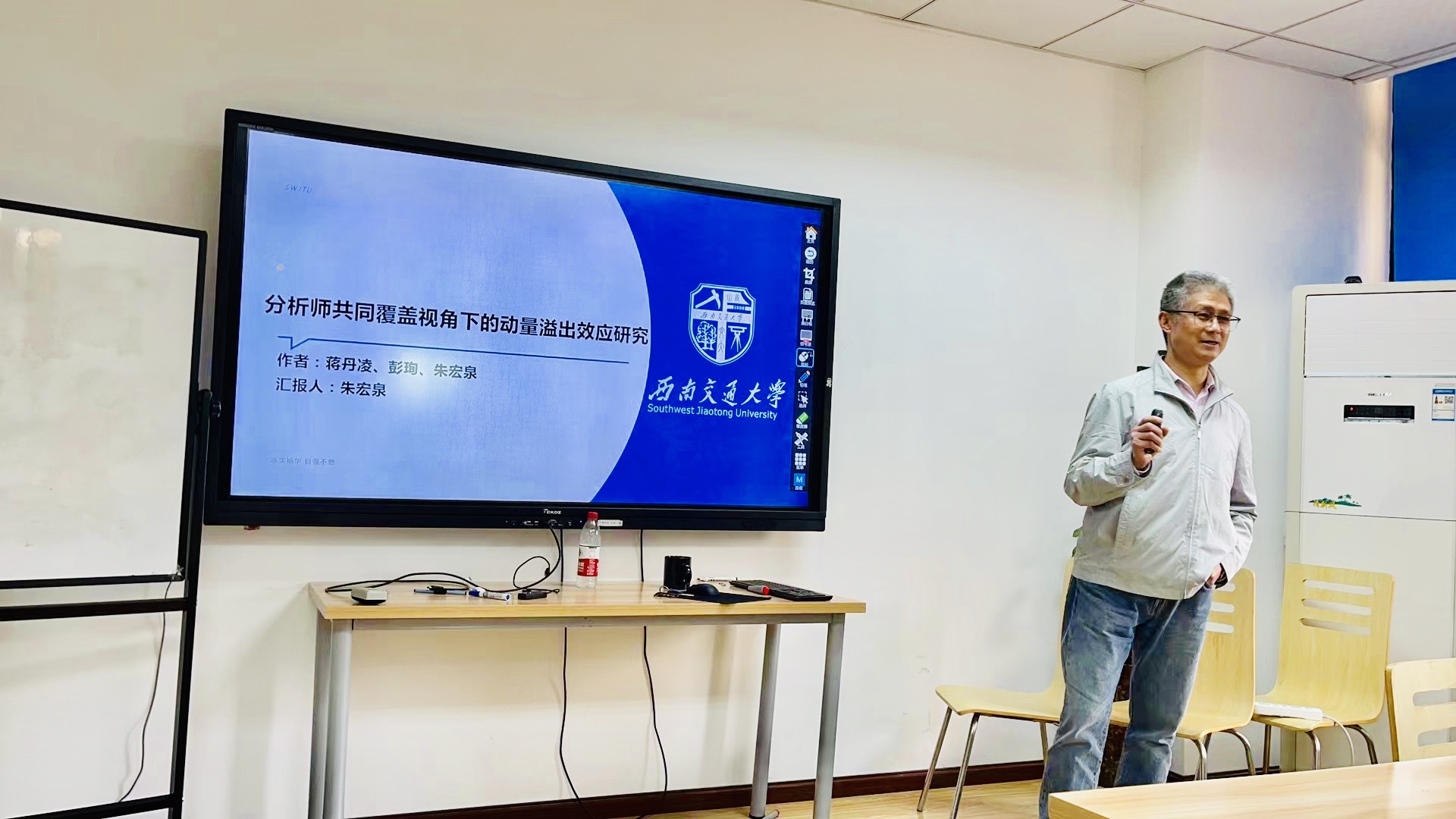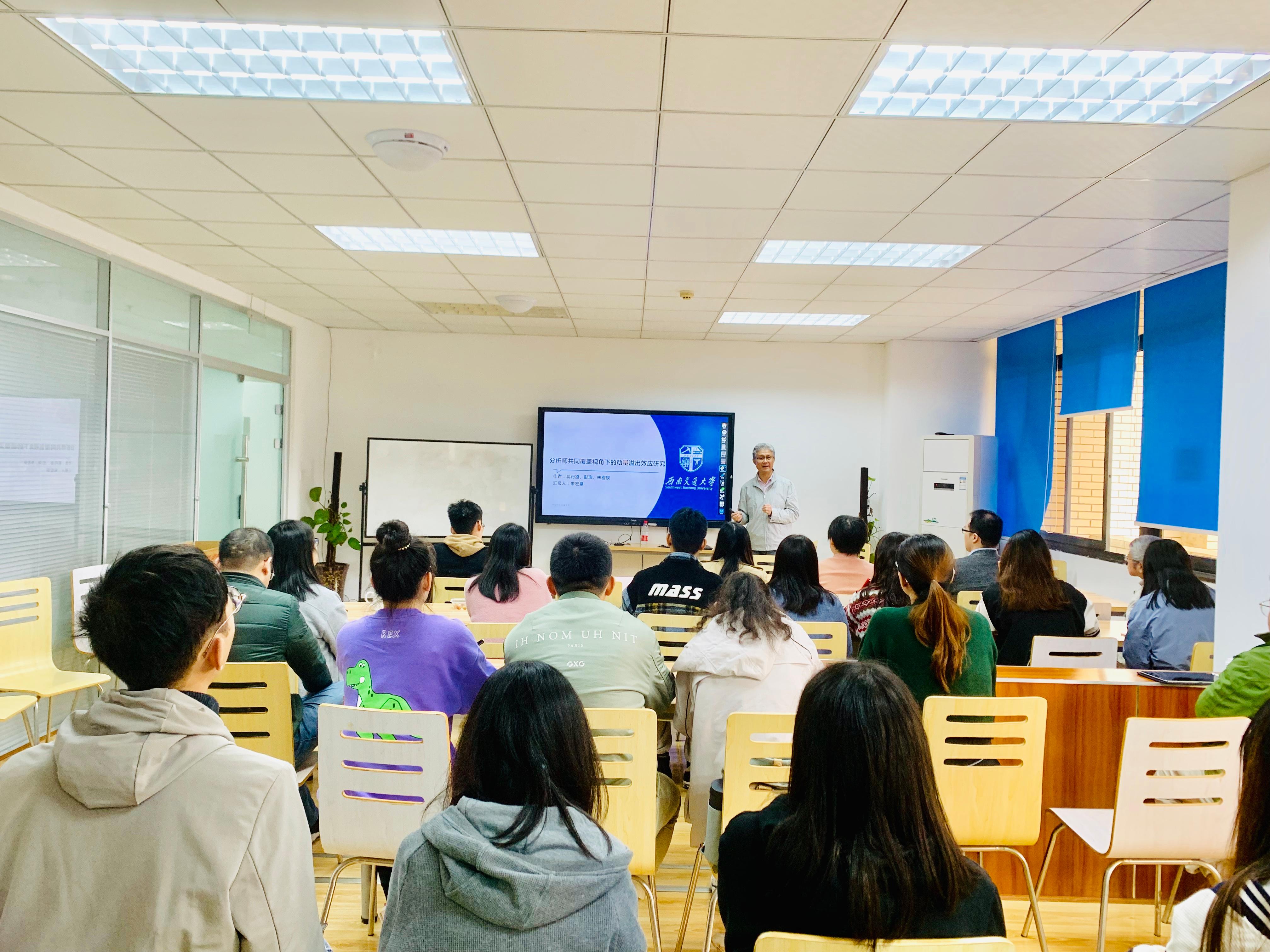

Date: October 28, 2021
Time: 13:00 pm
Venue: Room 0411, Teaching Building 0#, Jiuli Campus
Event Details:
Lecturer: Professor ZHU Hongquan
About the Lecturer:
Zhu Hongquan, professor, doctoral supervisor. He has presided over five general projects of the National Natural Science Foundation of China, and his research work has been published in important academic journals at home and abroad, such as Journal of Banking and Finance and Journal of Management Science. He has successively won the third prize of Sichuan Province Teaching Achievement Award, Southwest Jiaotong University "Top Ten Outstanding Communist Party Member", "Excellent Postgraduate Tutor", "Lide Shuren" (Scientific Research and Education) Advanced Individual and other honorary titles.
About the Lecture:
Based on the limited attention hypothesis, this lecture uses analysts' common coverage (called affiliated companies) to measure the relevance of companies, and examines the momentum spillover effect between affiliated companies. The study found that the rate of return of related companies can positively predict the rate of return of the focus company in the next 1-12 months, and the long-short investment portfolio based on the momentum factor of the related company can obtain 10% to 12% of the annualized return per month. In the cross-sectional regression, the momentum spillover effect of related companies is stronger than the momentum spillover effect of industries and regions. After controlling the momentum effect of related companies, the momentum spillover effects of industries and regions are significantly weakened or even no longer significant. Further analysis shows that the momentum spillover effect of affiliated companies is stronger when more analysts jointly cover it, and this momentum spillover effect is caused by the slow behavior of analysts and investors due to the limited attention of analysts and investors.

